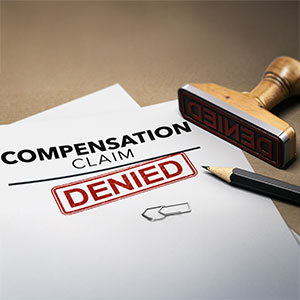Amendment Relates Back Even If New Element Is Added
Personal InjuryIn the case of Kelly Mitchell v. Applebee’s Services, Inc., Case Number 1D18-2555 (Fla. 1st DCA October 1, 2019), Florida’s First DCA held that an amendment after the expiration of the statute of limitations that introduces a new element to the same cause of action relates back to the original complaint.
What Was Amended Against Applebees?
Ms. Mitchell filed her lawsuit against Apple Two Associates, Inc., d/b/a Applebee’s and Applebee’s Services, Inc. for negligence for a slip and fall injury in a single count. This occurred just days before the statute of limitation expired.
Approximately 6 months later, it appears that the plaintiff became aware that Applebee’s Services, Inc. had purchased the Applebee’s restaurant from Apple Two Associates, Inc. and that they had assumed all debts, liabilities, and responsibilities. This would include liability for the lawsuit.
Thereafter, the plaintiff sought an amendment to the lawsuit to add a second count (after the statute of limitation had run) describing the purchase arrangement. Applebees moved to dismiss and the trial judge granted dismissal of the second count stating that there was “nothing for the amended complaint to relate back to.”
Florida Law Allows Amendments To Lawsuits If They Do Not Introduce A New Cause of Action
In Florida, the parties to a lawsuit are supposed to be allowed a liberal policy of amendments so that cases can be resolved on their merits rather than technicalities. In this particular case, since the statute of limitation had expired, the amendment must “relate back” to the original complaint. Otherwise, an amendment cannot be allowed after the statute of limitation has run.
In Caduceus Props., LLC v. Graney, 137 So. 3d 987, 991 (Fla. 2014) Florida Supreme Court held that “as long as the initial complaint gives the defendant fair notice of the general factual scenario or factual underpinning of the claim, amendments stating new legal theories can relate back . . . even where the legal theory of recovery has changed or where the original and amended claims require the assertion of different elements.“
Further, in HSBC Bank USA, Nat’l Ass’n v. Karzen, 157 So. 3d 1089, 1091 (Fla. 1st DCA 2015), it was held that “[t]he key inquiry to determine whether an amendment relates back or is barred by the statute of limitations is whether the party in question had notice of the litigation during the limitations period under the original pleadings and the amendment merely adjusts the status of an existing party, or the amendment actually introduces a new defendant.”
Therefore, you can amend a lawsuit to add new elements or legal theories so long as the other party had “fair notice” of the general facts of the case, even after the expiration of the statute of limitations, so long as there is not a completely new cause of action (which would be a new factual scenario). Likewise, new elements (such as the status of a party as a “successor in interest” as in this case) to the same cause of action are sufficient to “relate back” to the original allegations in the lawsuit.
That is Fla. R. Civ. P. 1.190(c) in a nutshell.
Ask Us For Help With Your Florida Personal Injury Case
Your Florida personal injury case is subject to a complex body of law. If you want to be successful with your injury case, you should get the help of an attorney. By searching for a personal injury attorney in Polk County near me, you will find the help that you need starting with a free consultation with Russo Law. Schedule your free consultation with a Lakeland personal injury attorney today.


